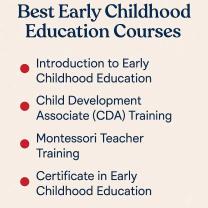What does the business writing skills course teach?
The curriculum of business writing skills courses is designed to equip participants with the essential skills and knowledge needed to communicate effectively in a professional and business-oriented context. While specific courses may vary, a typical business writing skills course covers the following key areas:
Understanding the Audience:
- Identify and analyze the intended audience for business communication.
- Tailor writing style, tone, and content to address the needs and expectations of different stakeholders.
Clarity and Conciseness:
- Emphasize the importance of clarity and conciseness in business writing.
- Teach techniques for expressing ideas clearly and avoiding unnecessary jargon.
Structure and Organization:
- Guide participants on how to structure various types of business documents, such as emails, memos, reports, and proposals.
- Teach principles of effective organization, including the use of headings, bullet points, and logical flow.
Professional Email Writing:
- Provide strategies for crafting professional and impactful emails.
- Cover email etiquette, subject lines, and appropriate salutations.
Memo and Report Writing:
- Explore the nuances of writing effective memos and reports.
- Include sections on introduction, body, conclusion, and recommendations.
Grammar and Punctuation:
- Review fundamental grammar rules and punctuation guidelines relevant to business writing.
- Address common mistakes and how to avoid them.
Editing and Proofreading:
- Teach techniques for editing and proofreading written documents.
- Emphasize the importance of error-free communication in a professional setting.
Business Proposal Writing:
- Introduce the process of creating persuasive business proposals.
- Cover elements such as executive summaries, problem statements, and proposed solutions.
Meeting Minutes and Agendas:
- Provide guidelines for taking effective meeting minutes.
- Teach how to create clear and informative meeting agendas.
Collaborative Writing:
- Explore strategies for collaborative writing in a business context.
- Address challenges and best practices for working on documents as a team.
Handling Sensitive Topics:
- Guide participants on how to address sensitive topics and difficult situations in business writing.
- Teach techniques for delivering feedback diplomatically.
Visual Communication:
- Introduce principles of visual communication in business writing.
- Explore the effective use of charts, graphs, and other visual elements.
Legal and Ethical Considerations:
- Discuss legal and ethical considerations in business writing.
- Address issues related to confidentiality, privacy, and compliance.
Crisis Communication:
- Provide insights into writing in times of crisis or managing communication during challenging situations.
- Teach strategies for maintaining transparency and credibility.
Professionalism and Branding:
- Emphasize the role of business writing in representing the professionalism and brand image of an organization.
- Provide guidelines for maintaining a consistent and positive brand voice.
Interactive Exercises and Feedback:
- Incorporate practical exercises, writing assignments, and simulations to allow participants to apply the concepts learned.
- Provide constructive feedback on written assignments to facilitate improvement.
Business writing skills courses often balance theoretical concepts with practical applications to ensure that participants can immediately apply what they learn to real-world scenarios. The goal is to help individuals communicate effectively and professionally in a variety of business contexts.
Unlocking the Power of Words: Diving into Business Writing Skills Courses
A business writing skills course equips you with the tools to transform ordinary words into clear, concise, and impactful communication. Let's explore the key elements of such a course and how it can elevate your professional prowess:
1. Key Topics Covered:
- Foundations of Business Writing: This includes clarity, conciseness, tone, style, grammar, and punctuation.
- Effective Communication Strategies: Learn how to adapt your writing to different audiences and objectives, master email communication, and craft persuasive messages.
- Document Types and Formats: Gain expertise in writing various business documents such as emails, reports, proposals, memos, presentations, and press releases.
- Writing for Specific Purposes: Focus on tailored writing for marketing materials, internal documents, negotiations, and more.
- Editing and Proofreading: Techniques for self-editing, revising, and polishing your writing.
2. Communication and Professionalism Enhancement:
Taking a business writing course benefits you in multiple ways:
- Clear and concise communication: You learn to express complex ideas simply and effectively, avoiding jargon and ambiguity.
- Increased professionalism: Polished writing reflects positively on you and your organization, building trust and credibility.
- Improved confidence: You gain the ability to communicate your ideas with clarity and persuasion, boosting your confidence in professional interactions.
- Enhanced collaboration: Clear written communication fosters better teamwork and collaboration within organizations.
- Career advancement: Strong writing skills are highly sought-after in various industries, opening doors to career opportunities.
3. Typical Curriculum Outline:
- Module 1: Writing Principles: Clarity, Conciseness, Tone, Style
- Module 2: Email Communication: Professional Etiquette, Effective Structure, Formatting Tips
- Module 3: Business Reports: Research, Analysis, Presentation, Data Visualization
- Module 4: Proposals: Persuasive Writing, Formatting and Structure, Call to Action
- Module 5: Memos and Internal Documents: Conciseness, Clarity, Actionable Content
- Module 6: Presentations: Visual Storytelling, Engaging Delivery, Q&A Strategies
- Module 7: Business Writing Style Guides: Grammar, Punctuation, Formatting Consistency
- Module 8: Writing for Specific Industries: Tailoring Messages for Different Audiences
- Module 9: Editing and Proofreading: Techniques for Self-Revision and Polishing
- Module 10: Case Studies and Real-World Applications
4. Practical Skills and Techniques:
- Structure and organization: Learn to map out your content effectively, using strong introductions, transitions, and conclusions.
- Active voice and strong verbs: Improve sentence structure and avoid passive voice for impactful writing.
- Audience analysis: Adapt your writing style and tone to different audiences and objectives.
- Conciseness and clarity: Eliminate redundancy and unnecessary words for clear and concise communication.
- Data visualization and storytelling: Learn to present data effectively in reports and presentations.
- Proofreading and editing: Develop sharp eyes for identifying and correcting errors in grammar, punctuation, and style.
5. Case Studies and Success Stories:
Numerous examples showcase the transformative power of business writing skills courses:
- Sales representative: Mastering persuasive writing landed him a major client, exceeding sales targets.
- Marketing manager: Effective email communication improved response rates for email campaigns, boosting brand engagement.
- Technical writer: Refining technical writing skills secured her a promotion to lead writer.
- Entrepreneur: Compelling pitch deck written in the course helped secure seed funding for his startup.
Investing in a business writing skills course is an investment in your professional future. By honing your communication skills, you project confidence, improve collaboration, and open doors to new opportunities. Start your journey today and unlock the power of impactful business writing!













